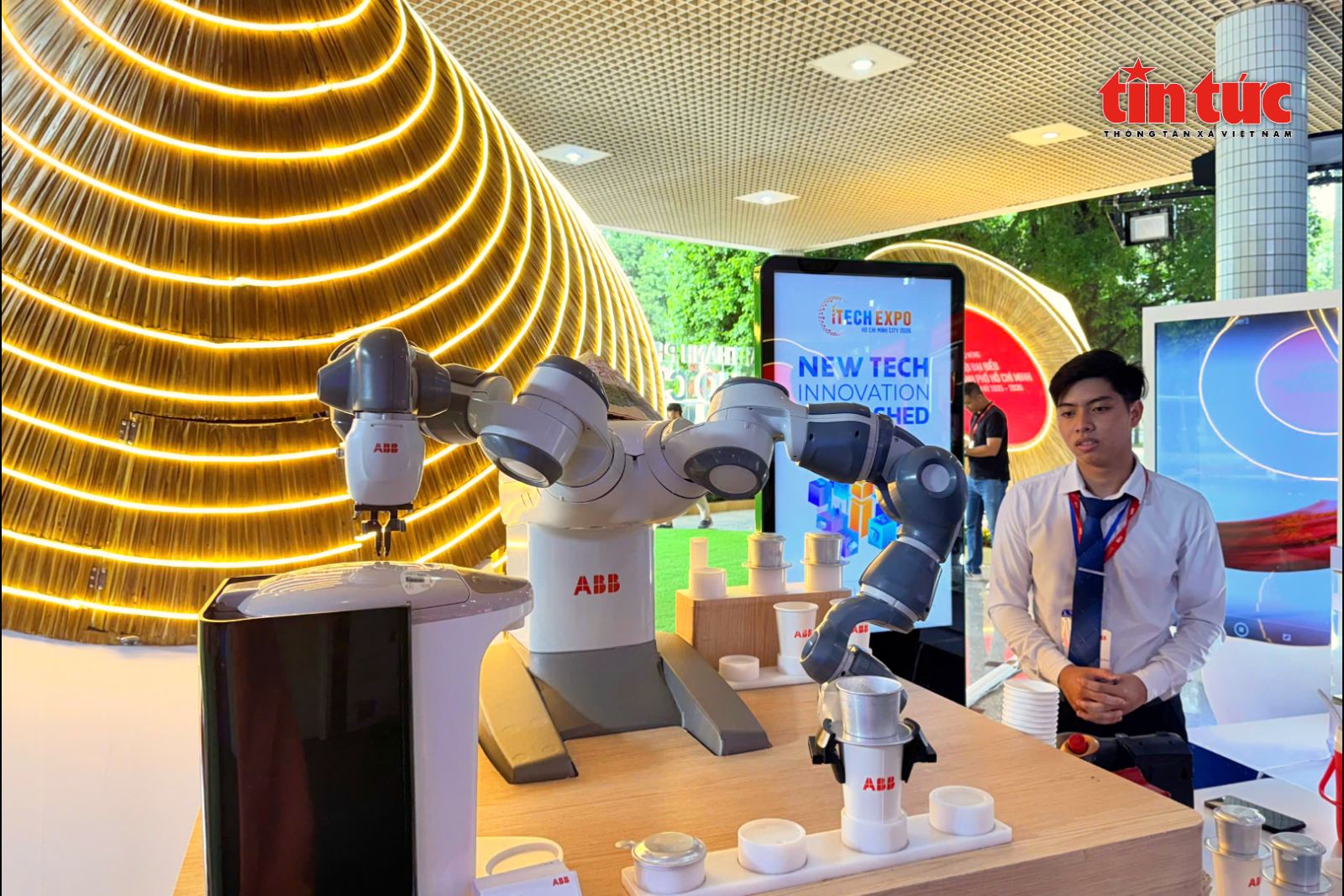
This reality has been analyzed and evaluated by experts, education managers and businesses at the ABAII Unitour 2025 program, organized by the Vietnam Blockchain and Digital Asset Association (VBA) in collaboration with the ABAII Institute of Blockchain Technology and Artificial Intelligence at the University of Economics and Finance, Ho Chi Minh City (UEF).
With the theme “Crypto Assets and Artificial Intelligence - Creating Integration Gear for Students”, the event attracted special attention from academics and students, emphasizing the urgency of preparing high-quality human resources, ready for the digital integration era.
Bring students early access
Dr. Ngo Minh Hai, Vice President of UEF, affirmed the pioneering role of higher education institutions in bringing blockchain and AI closer to students. “Proactively equipping students with fundamental and in-depth knowledge of blockchain and AI is not only to stay ahead of the trend, but also to build a solid career mindset in a volatile digital economic environment,” he emphasized.
According to Dr. Ngo Minh Hai, the school considers technological innovation as a core development driver, and the strategic requirement is to closely link academic training with market practice, helping students to be able to identify both opportunities and risks in the data era.
Analyzing the market size, Mr. Le Anh Quoc, an expert from the Vietnam Blockchain and Digital Asset Association and currently the Operations Director of AlphaTrue Solutions, provided impressive figures.
Notably, forecasts from leading financial institutions such as JPMorgan Chase show that this scale could reach 10,000 billion USD by 2030. “These numbers reflect a structural shift: blockchain is no longer an experimental technology but is gradually becoming part of the global core financial infrastructure,” Mr. Quoc emphasized.
A clear demonstration of this is the trend of "Tokenizing Real-World Assets" (RWA), which is considered a new pillar of the financial industry. A series of traditional financial "giants" such as JPMorgan, HSBC and BNY Mellon are actively participating in the digitization of tangible assets such as bonds, investment funds and other physical assets.
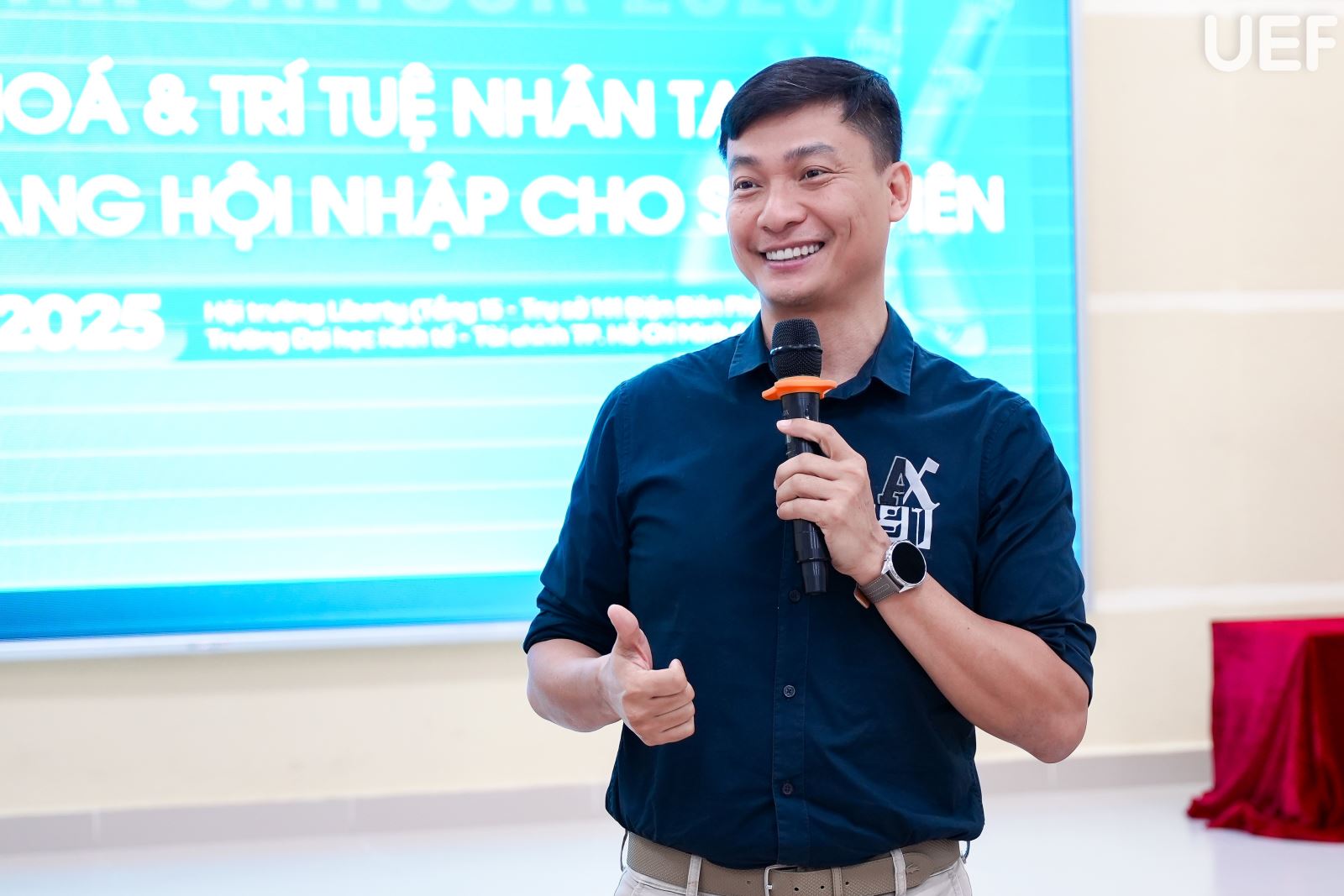
In addition, global payment corporations such as Visa, Mastercard and PayPal are also testing and introducing stablecoins into cross-border payment systems, showing the increasingly clear convergence between traditional finance (TradFi) and decentralized finance (DeFi).
However, the explosive growth of the market also comes with significant risks. Mr. Le Anh Quoc warned about the downside of technology when financial criminals continuously take advantage of loopholes. Statistics from 2019 - 2024 in Vietnam show that there have been more than 20,000 high-tech fraud cases recorded, causing estimated losses of up to 12,000 billion VND.
This situation raises an urgent need for RegTech solutions. “Tools such as AI e-KYC (electronic smart customer identification), on-chain transaction analysis systems and automated compliance reporting mechanisms are becoming mandatory platforms to ensure transparency and safety for the market,” said Mr. Quoc.
“Students majoring in economics and finance need to quickly access these risk management and data technologies to become the core force in building a safe and sustainable digital financial ecosystem,” Mr. Quoc further emphasized.
Shaping global labor productivity
If blockchain is reshaping financial infrastructure, artificial intelligence (AI) is becoming the core driver of productivity and innovation on a global scale. Mr. Nguyen Dang Chi, Lecturer at the Institute of Blockchain Technology and Artificial Intelligence ABAII, gave in-depth analysis on how AI is changing the way people learn, work and make decisions.
Citing data from the Challenger Report 2025, Mr. Chi pointed out an alarming fact: more than 85% of employees laid off in the US in September 2025 were directly caused by slow adaptation to technology. Meanwhile, Reuters noted that work performance can increase 8 times when businesses know how to apply AI properly. On the LinkedIn platform, AI-related skills are currently the fastest growing group of competencies globally.
According to the World Economic Forum (WEF), by 2030, the core competencies of the workforce will revolve around skills such as AI, Big Data, cybersecurity and creative thinking. Vietnam is among the countries with the fastest growth in technology human resources in the region.
The need for 200,000 Blockchain - Fintech - AI personnel by 2025 is a huge opportunity for the young generation to master technology and deeply integrate into the digital economy. Mr. Chi said: "This is a clear signal for higher education to focus on training high-quality human resources, not only understanding technology but also having a firm grasp of the law and the ability to adapt flexibly."
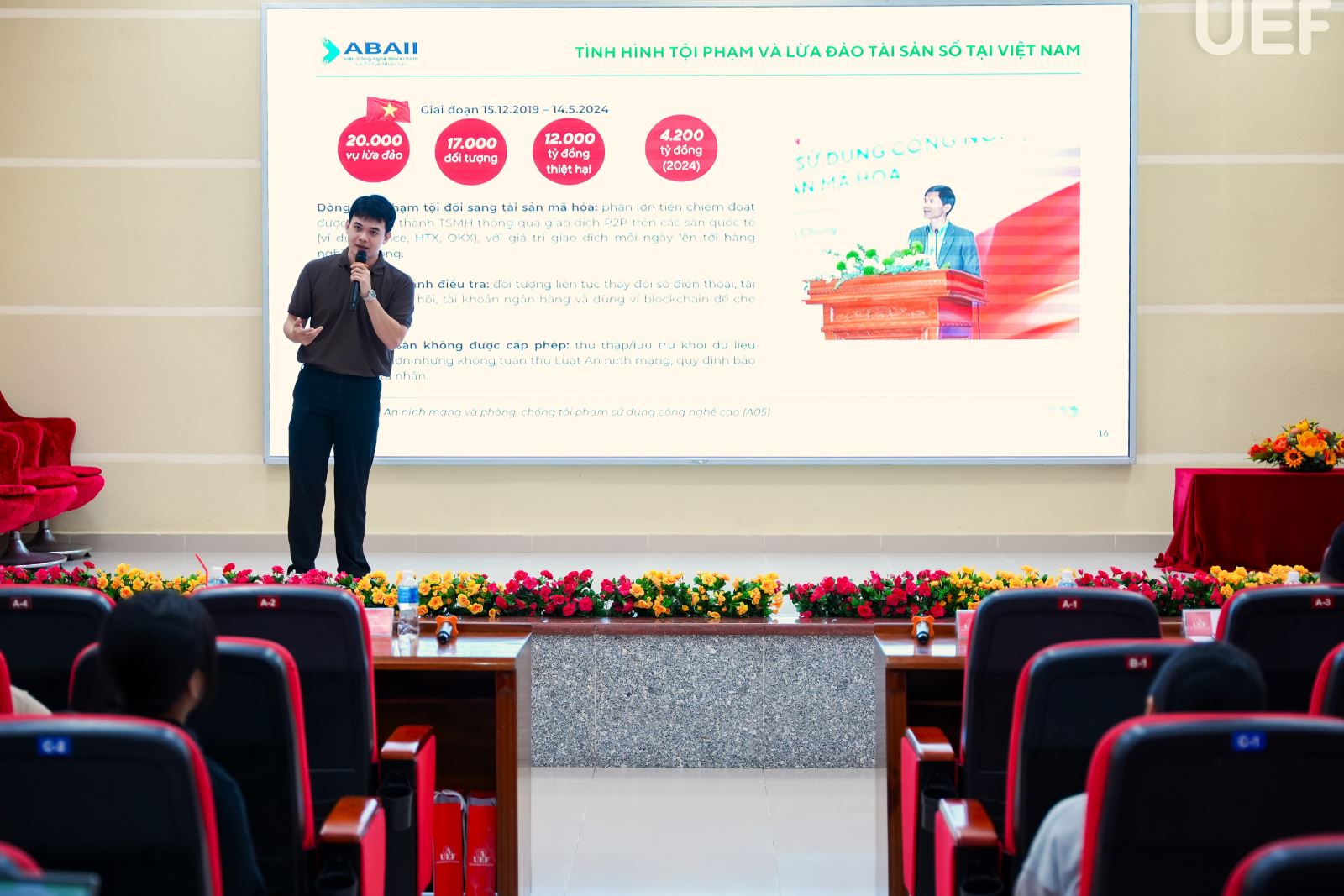
Mr. Piyush Shah, Chief Operating Officer of Bingold Pte. Ltd (Singapore), also highly appreciated Vietnam's opportunity to become a bright spot on the regional digital finance map, thanks to its young population, rapid digitalization and clear strategic direction from the Government.
From a training perspective, Master Nguyen Nam Trung, Assistant Dean of the Faculty of Finance and Accounting and Head of the Financial Technology (Fintech) Department of UEF, said: “The new wave of technology is creating pressure, pushing higher education to innovate strongly”. This requires the deep integration of interdisciplinary knowledge of finance, technology and law, while strengthening links with businesses and industry associations to create a complete human resources ecosystem.
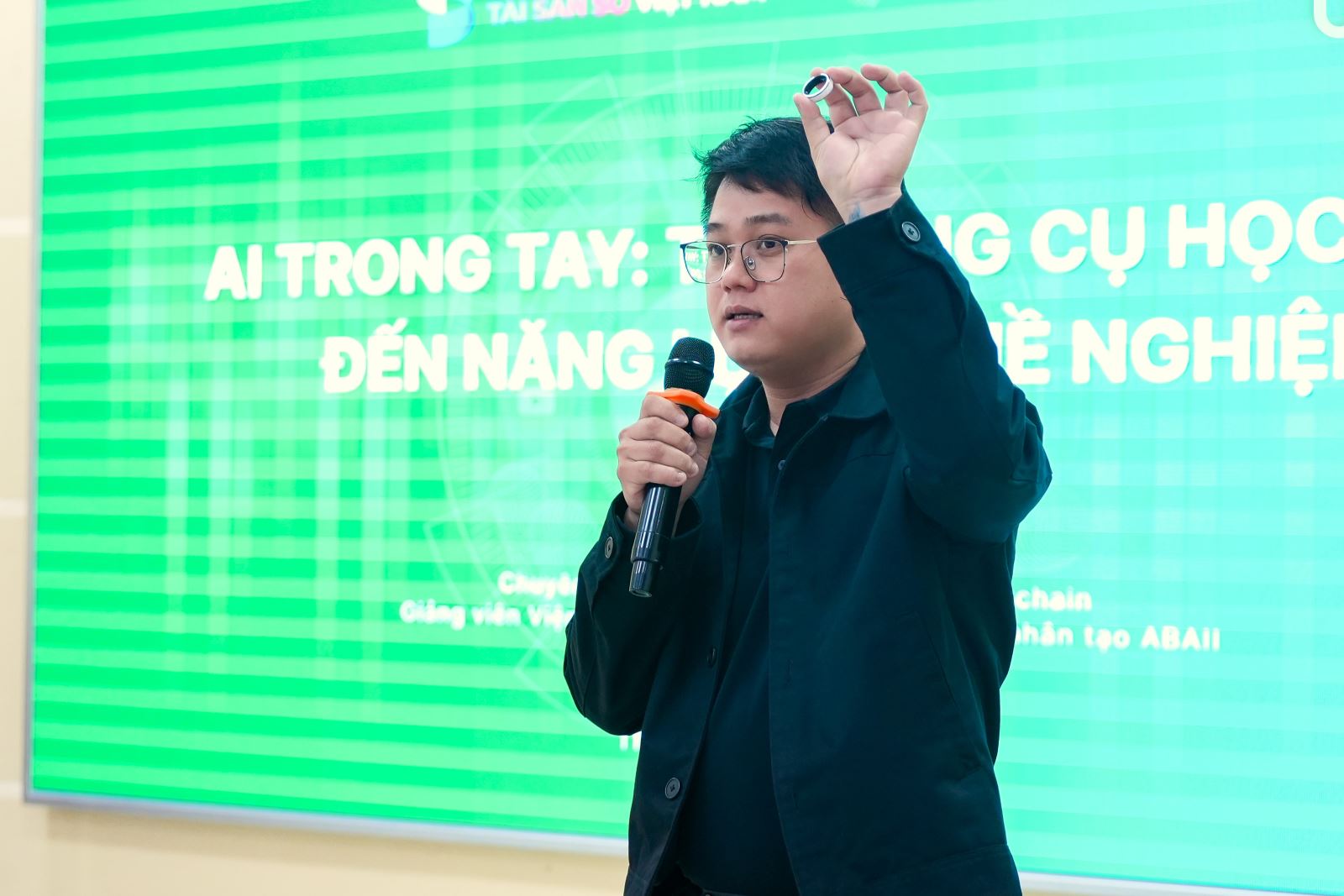
Adding from the perspective of recruiting businesses, Ms. Le Ngoc My Tien, General Director and Co-founder of BlockchainWork, concluded that the key factor for businesses in the digital age is not only technology, but also "innovative thinking". She said: "Students, as the future workforce, need to develop both professional capacity and adaptability in parallel. They need to know how to take advantage of technology to increase productivity, thereby building sustainable values and making practical contributions to Vietnam's digital business ecosystem".
The ABAII Unitour 2025 program at UEF is not only an academic forum, but also a practical bridge to help students have a comprehensive view of the role of technology in the contemporary economic picture. Sharing from experts has shown that digital capacity is no longer an option, but has become a mandatory integration tool for the young generation of Vietnam on the path towards a creative, transparent and sustainable economy.
Source: https://baotintuc.vn/giao-duc/kinh-te-so-mo-ra-hang-tram-ngan-vi-tri-viec-lam-cho-sinh-vien-viet-nam-20251103174433961.htm





![[Photo] Closing of the 14th Conference of the 13th Party Central Committee](https://vphoto.vietnam.vn/thumb/1200x675/vietnam/resource/IMAGE/2025/11/06/1762404919012_a1-bnd-5975-5183-jpg.webp)


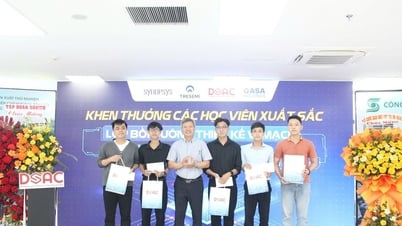

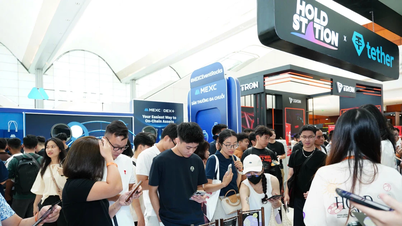

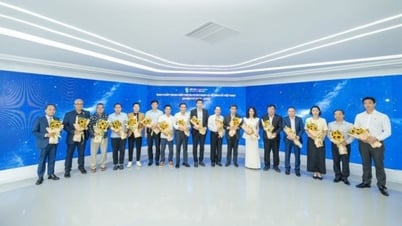

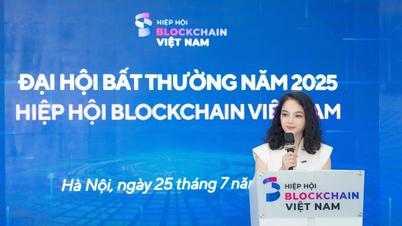


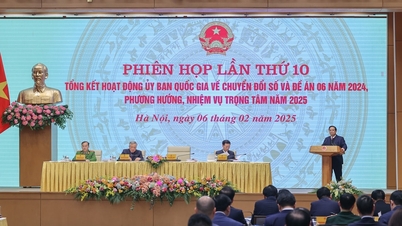

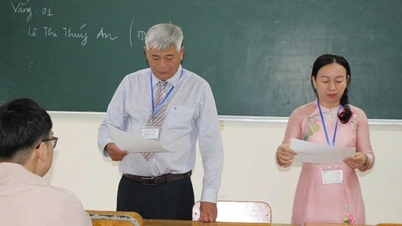








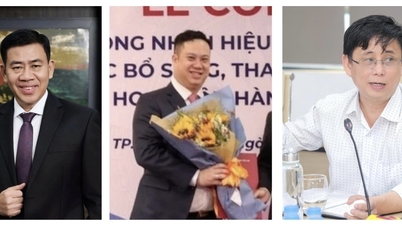





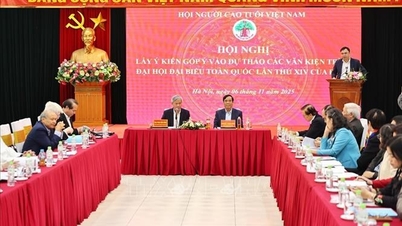



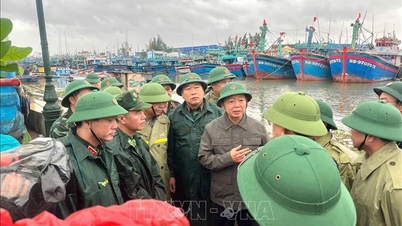
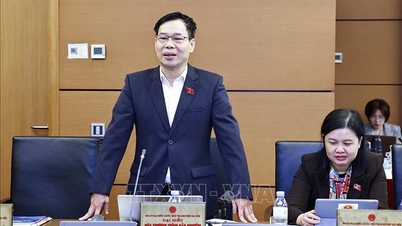



































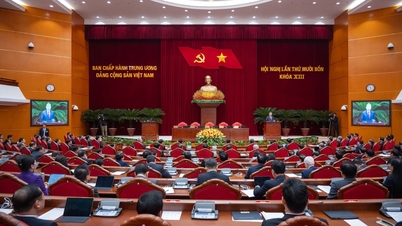



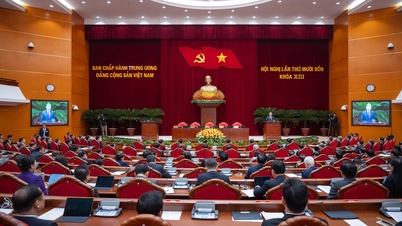
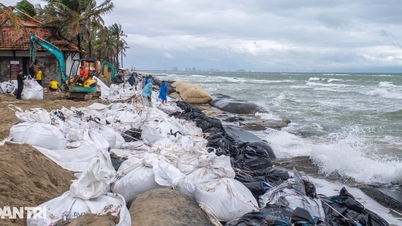



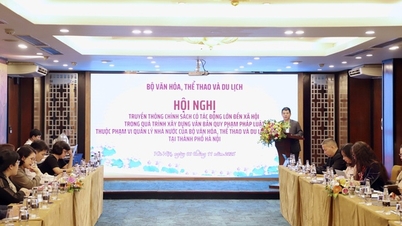


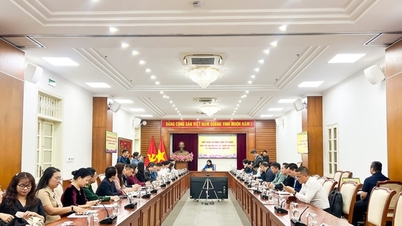
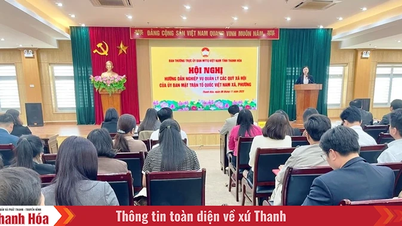

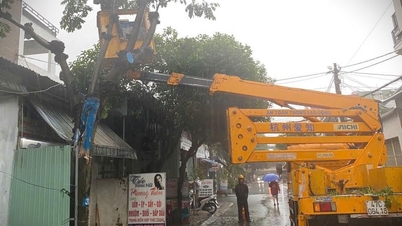

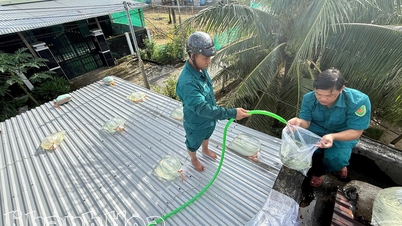

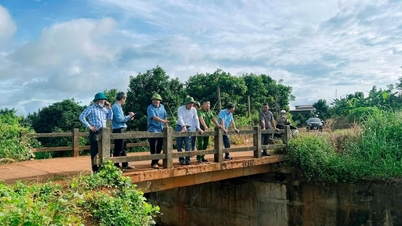


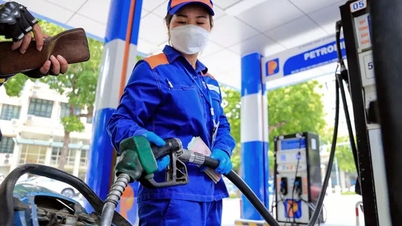














Comment (0)